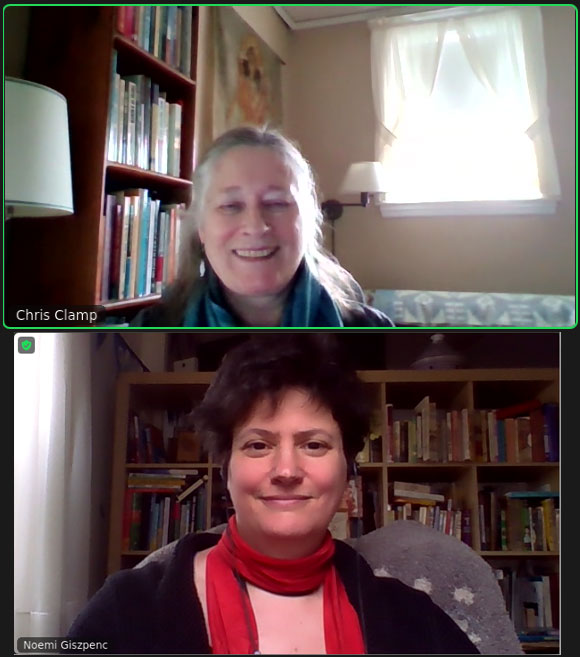The DCC talks to a Data Gatherer: Prof. Chris Clamp of SNHU

Professor Christina Clamp was there at the start of the Data Commons Cooperative, as a professor teaching research methods to DCC co-founder Noémi Giszpenc. She is now bringing current students to a love of research and cooperative economic solutions, and getting value from the work of the DCC.
Describe the research project you have your students working on.
18-19 students will be engaging in four different research projects in March, including one that is a census of cooperatives in Vermont.
What are the benefits to the students?
When students work on research projects for my course, it becomes part of what they talk about as their story when they look for work–that they have experience doing research. That is a useful skill, for example with fundraising or grantwriting. So this experience helps them with their confidence in who they are as they go out into the world. Politically, getting them to think about co-ops as something that’s real and widely present in the region is a good thing.
What did the Data Commons provide that was helpful?
Being able to use past data from an earlier VT co-op census is useful, because it allows us to move the project much more quickly along.
What does the DCC’s current work on data field standardization mean to you?
The work that we did as a committee with you looked at different data fields and decided what kinds of information could be gathered at different stages, what audiences it would be useful to, and broke it down into segments so that data gathering would be a manageable task for students.
What do you think of DCC’s work on data ownership?
You have to be careful that people can click off how much of their info should be available. You don’t want people to get burned out on their relationship with DCC because it may have contributed to something they didn’t want, like unwanted solicitations. In general, as researchers, we can have a more mutual benefit and participatory approach, that really provides co-ops with something they can use, and some control over the narrative that is told about them.
How do you see data being deployed?
Other research projects I’m involved in include surveying co-ops that have been assisted by the Food Co-op Initiative, to track the outcomes and benefits that co-ops provide to members, employees, and their community. That will help FCI with fundraising. We also want to look at the economic impact of co-ops in the Northeast region and in each of the states, to support organizing, fundraising, and advocacy here.
What motivates you to research the co-op economy?
I love doing research, and getting other people interested in doing research. And I’m just passionate about seeing co-ops grow and flourish and become a more mainstream part of the economy, and tilt the economy in the direction of justice, diversity, equity and inclusion.
Leave a Reply
You must be logged in to post a comment.